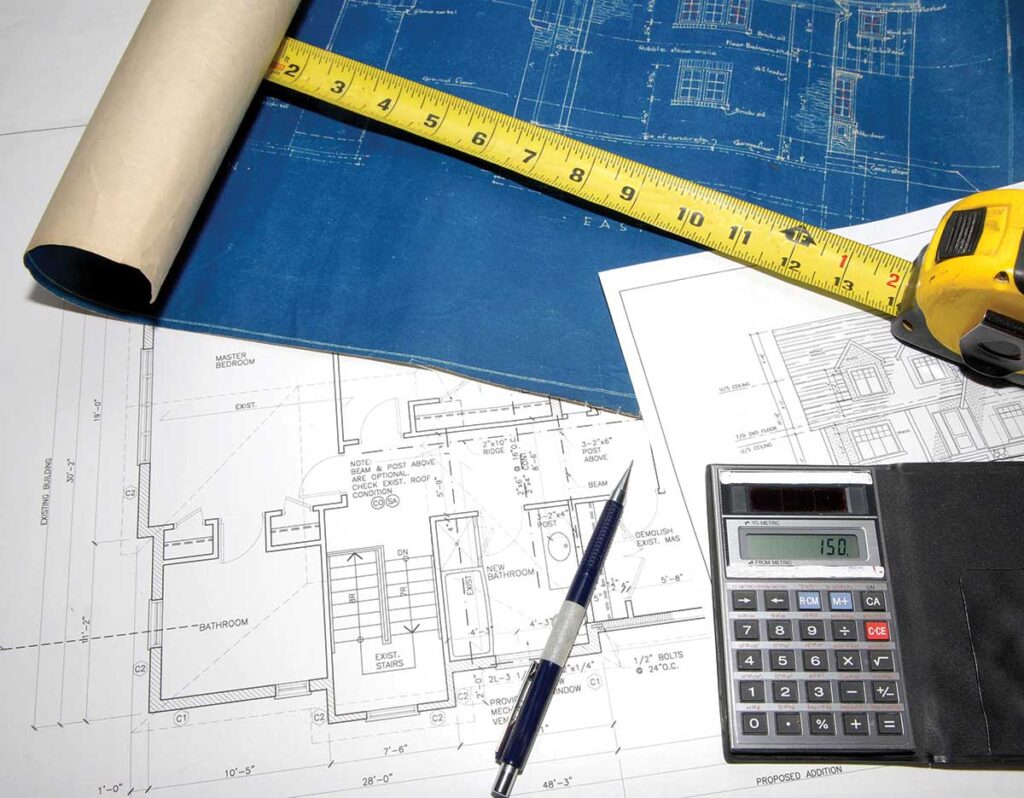Construction estimator in today’s fast-paced construction industry, precision and accuracy are paramount. The role of a construction estimator has become increasingly vital as projects grow in complexity and scope. Estimating costs accurately can make or break a project, as even minor miscalculations can lead to budget overruns or financial losses. In this comprehensive guide, we will explore what it means to become a construction estimator, the skills required, and how mastering precision can lead to success in the field Construction estimator.

Whether you are considering a career as a construction estimator or looking to enhance your current estimating skills, this guide will provide valuable insights into the world of construction estimating, breaking down the steps needed to excel in this profession.
What is a Construction Estimator?
A construction estimator is a professional responsible for calculating the total cost of a construction project, from initial budgeting to final delivery. This involves assessing materials, labour, equipment, and other expenses required to complete the project. By creating a detailed estimate, construction estimators help project managers and clients understand the overall financial requirements.
In the competitive world of construction, accurate estimating is essential for keeping projects on budget, ensuring profitability, and maintaining client satisfaction. A skilled construction estimator is not only proficient in mathematics but also has a deep understanding of construction processes, materials, and market rates.
Key Responsibilities of a Construction Estimator
The role of a construction estimator involves a variety of tasks, all aimed at ensuring the financial success of a project. Some of the core responsibilities include:
Analysing project plans and specifications
The estimator must thoroughly review architectural and engineering drawings to understand the scope of work.
Quantifying materials and labour
Based on the project plans, the estimator calculates the quantity of materials, equipment, and labour required.
Researching costs
Understanding current market prices for materials and labor is crucial for developing an accurate estimate.
Creating detailed cost estimates
Using the information gathered, the estimator generates a comprehensive estimate that includes all costs associated with the project.
Collaborating with project teams
Estimators often work with architects, engineers, contractors, and clients to refine estimates and ensure project feasibility.
Monitoring project progress
Throughout the construction phase, the estimator may review actual costs versus estimated costs to ensure budget compliance.
A successful construction estimator must be highly organised and detail-oriented to manage these tasks effectively.
The Skills Required for Accurate Construction Estimating
Becoming a successful construction estimator requires a combination of technical knowledge, mathematical proficiency, and industry experience. Key skills include:
Mathematical Skills
Estimating costs involves complex calculations, and a strong understanding of math is essential.
Attention to Detail
Precision is key in estimating, as even small mistakes can lead to significant financial discrepancies.
Technical Knowledge
Familiarity with construction materials, methods, and processes is crucial for accurate estimates.
Time Management
Estimators often work under tight deadlines, so managing time efficiently is essential.
Communication Skills
A construction estimator must effectively communicate estimates and project details to stakeholders.
Problem-Solving Ability
Challenges often arise during the estimation process, and an estimator must be able to find creative solutions.
Tools and Software Used by Construction Estimators
To enhance accuracy and efficiency, many construction estimators rely on specialised tools and software. These tools help automate calculations, manage data, and streamline the estimation process. Some popular construction estimating software includes:
ProEst
An all-in-one estimating software designed for construction professionals.
PlanSwift
A takeoff and estimating tool that allows users to measure plans and estimate costs.
Sage Estimating
A robust estimating solution that integrates with accounting and project management software.
Bluebeam Revu
A PDF-based tool for digital takeoff and estimation.
STACK
A cloud-based platform for takeoff and estimating.
These tools help construction estimators manage complex projects, improve accuracy, and collaborate with other team members effectively.
Steps to Becoming a Construction Estimator
If you’re interested in pursuing a career as a construction estimator, there are several key steps to follow:
Obtain a Relevant Education
A background in construction management, civil engineering, or a similar discipline is typically necessary for those pursuing a career as a construction estimator. Coursework in mathematics, blueprint reading, and cost analysis will be particularly beneficial.
Gain Practical Experience
Working on construction sites or in project management roles can provide invaluable hands-on experience. Understanding how projects are built helps estimators develop more accurate estimates.
Develop Estimating Skills
Take courses or training programs that focus on estimating techniques, including software tools commonly used in the industry.
Get Certified
Certification from professional organisations such as the American Society of Professional Estimators (ASPE) or the Association for the Advancement of Cost Engineering (AACE) can enhance your credibility as a construction estimator.
Stay Updated on Industry Trends
As construction methods and materials evolve, it’s essential to stay informed about the latest trends and technologies in the industry.
Challenges Faced by Construction Estimators
The role of a construction estimator can be challenging, as it requires balancing numerous variables. Some common challenges include:
Changing material costs
Market fluctuations can make it difficult to estimate material prices accurately.
Unforeseen project changes
Changes in project scope or design can lead to cost overruns, which must be accounted for in the estimate.
Tight deadlines
Estimators often work under pressure to provide quick and accurate estimates.
Limited information
In some cases, estimators must work with incomplete data, making it harder to produce accurate estimates.
Best Practices for Construction Estimating Success
To succeed as a construction estimator, it’s important to follow best practices that ensure accuracy and reliability. Some tips for success include:
Double-check your work
Always review your estimates for errors and inconsistencies.
Use reliable data
Make sure your cost data is current and precise.
Collaborate with others
Work closely with architects, engineers, and contractors to ensure that your estimates align with project requirements.
Stay organised
Use checklists and templates to keep track of all necessary information.
Keep learning
The construction industry is constantly evolving, so continuous education is essential.
Benefits of Hiring a Professional Construction Estimator
For construction companies and clients alike, hiring a professional construction estimator can provide numerous benefits:
Cost savings
Accurate estimates help prevent budget overruns and unnecessary expenses.
Improved project planning
Detailed estimates allow for better project planning and resource allocation.
Risk management
A construction estimator can identify potential cost risks early in the process.
Client satisfaction
Accurate estimates lead to better communication with clients and more successful project outcomes.
Frequently Asked Questions (FAQs)
Q:What does a construction estimator do?
A:A construction estimator calculates the total cost of a construction project, including materials, labour, and other expenses.
Q:What qualifications do you need to become a construction estimator?
A:A degree in construction management or civil engineering, along with practical experience and proficiency in estimating software, is typically required.
Q:AWhat software do construction estimators use?
A:Popular tools include ProEst, PlanSwift, Sage Estimating, and Bluebeam Revu.
Q:How do you ensure accurate construction estimates?
A:Accurate estimating requires attention to detail, up-to-date cost data, collaboration with project teams, and the use of reliable software tools.
Q:What are the challenges faced by construction estimators?
A:Common challenges include fluctuating material costs, unforeseen project changes, and tight deadlines.

Conclusion
Becoming a construction estimator requires precision, expertise, and dedication. By mastering the skills and tools necessary for accurate estimating, you can play a crucial role in the success of construction projects. From understanding project plans to calculating costs, the role of a construction estimator is essential for ensuring that projects are completed on time and within budget.

